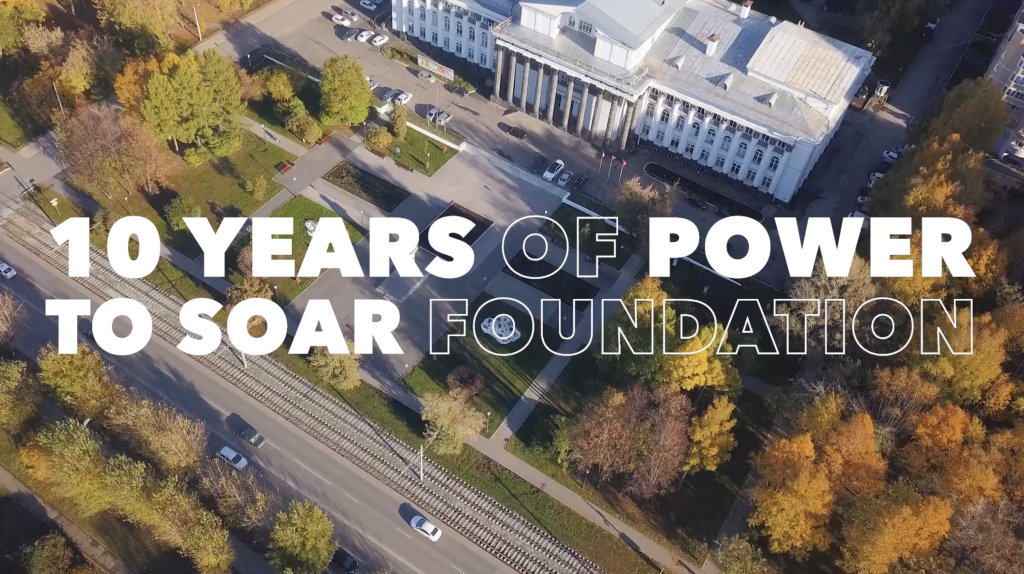Therapeutic foster care is a specialized form of foster care designed to support children with emotional, behavioral, or mental health needs. These children often come from challenging backgrounds, including trauma, neglect, or abuse, and require a higher level of care than traditional foster care can provide. Therapeutic foster care offers a safe and nurturing environment where children receive therapy, educational support, and other essential services to help them heal and thrive.
In the text that follows, readers will explore how therapeutic foster care works, the unique needs it addresses, and the vital role it plays in shaping brighter futures for children. From its focus on individualized care to the importance of a stable family setting, this article sheds light on why therapeutic foster care is a critical resource for children facing extraordinary challenges.
Key Takeaways
- Therapeutic foster care (TFC) provides specialized care for children with emotional, behavioral, or mental health needs stemming from trauma, neglect, or abuse.
- Extensive support and training equip foster parents to handle complex challenges, including trauma management and conflict resolution.
- Individualized services, such as therapy, educational support, and medication management, help children heal, grow, and thrive.
- TFC fosters a stable and nurturing home environment, promoting trust, emotional security, and stronger family relationships.
- Collaboration with professionals, including therapists and educators, ensures comprehensive care tailored to each child’s unique needs.
- TFC benefits families and communities, breaking cycles of trauma while helping children reach their full potential in a structured, supportive setting.
Table of Contents
What Is Therapeutic Foster Care?
Therapeutic foster care (TFC) provides a structured and nurturing home environment for children with significant emotional, behavioral, or mental health needs. Unlike traditional foster care, it incorporates therapy, education support, and personalized care plans to address the unique challenges these children face. By focusing on healing and growth, TFC helps children build stability and trust.
In TFC, trained foster parents play a vital role in creating a safe space where children can thrive. They receive specialized training to understand trauma, manage complex behaviors, and support therapeutic interventions. While every child’s situation is different, TFC often involves collaboration with therapists, case managers, and educators to ensure comprehensive care.

Children in therapeutic foster care often carry the weight of hardships such as abuse or neglect, which may lead to struggles with trust, self-esteem, or emotional regulation. Through consistent supervision, personalized attention, and targeted therapy, TFC helps them overcome these obstacles. Foster parents might assist with therapeutic techniques at home, attend therapy sessions, or use daily routines to reinforce a child’s progress.
A key benefit of this care is its focus on relationships within a family-like setting. TFC encourages foster children to bond with foster parents, learn positive interactions, and feel valued. For example, some foster parents help build these connections through shared meals, recreational activities, or simply being present during difficult moments.
The level of support in therapeutic foster care surpasses traditional models. It provides services tailored to a child’s needs, including medication management, educational resources, and intensive psychological care. Foster parents collaborate with professionals to ensure these services seamlessly integrate into a child’s life.
Therapeutic foster care stands out as a lifeline for children requiring extra care, helping them heal and prepare for brighter futures. Fostering through TFC is demanding but deeply rewarding, offering children hope and the chance to flourish in a stable, supportive environment.
How Does Therapeutic Foster Care Work?
Therapeutic foster care (TFC) provides a structured, healing environment tailored to children’s emotional, behavioral, and mental health needs. Through collaboration between foster parents, support teams, and therapists, TFC ensures each child receives individualized care to address their unique challenges.
Role of Therapeutic Foster Parents
Therapeutic foster parents play a central role in the healing process. They create a stable, nurturing home where children feel safe and supported. By building trust through consistent care, they help foster children develop emotional security and positive social skills. These parents work closely with therapists and case managers to carry out tailored care plans that focus on the child’s growth and resilience.
Foster parents often manage daily responsibilities such as medication schedules, therapy appointments, and school coordination. Their active involvement in these areas ensures children receive comprehensive care that integrates into every aspect of their lives. Though the journey may require patience and flexibility, the positive impact on a child’s well-being is profound.
Support and Training for Foster Parents
Organizations offer extensive support and training to prepare foster parents for TFC. This training equips them with the skills needed to handle complex behavioral challenges and provide emotional guidance. Training often includes 12 or more hours of specialized classes focusing on trauma-informed care, conflict resolution, and developmental strategies.
Support teams, including clinicians and caseworkers, provide ongoing assistance through biweekly visits, 24/7 on-call services, and respite care options. These resources reduce the stress on foster families while empowering them to meet the child’s needs effectively. Regular check-ins, parenting education, and therapy coordination strengthen the parent-child connection and foster continued progress.
Who Benefits From Therapeutic Foster Care?
Therapeutic foster care (TFC) offers transformative support for those directly impacted by emotional, behavioral, or mental health challenges. It addresses not only the child’s needs but also strengthens families and communities through specialized care and collaboration.
Children in Need of Specialized Care
Children with a history of trauma, neglect, or abuse find essential support through TFC. Often, these children face difficulties regulating emotions, building trust, or maintaining self-esteem due to their past experiences. In a therapeutic foster home, they receive a structured, secure environment where healing becomes possible.
Through consistent therapy sessions, whether individual or family-oriented, children process their feelings and learn coping mechanisms. Medication management ensures they receive the care required to address any mental health conditions effectively, while educational support builds confidence and fosters progress in school. Children who benefit most are those requiring intensive care that addresses their unique challenges alongside their growth and development.
Families and Communities
Foster families and the broader community also gain invaluable rewards from TFC. Families providing therapeutic care create safe spaces that promote recovery and stability for children, fostering stronger relationships and personal fulfillment. They work closely with multidisciplinary teams, including clinicians, educators, and social workers, ensuring that the child’s care plan is comprehensive and collaborative.
Communities benefit as foster children grow into healthier, better-adjusted individuals when their emotional and mental health needs are met. A well-supported child, in turn, becomes a positive, contributing member of their environment, enriching the community and breaking cycles of trauma.
Key Differences Between Therapeutic and Traditional Foster Care
Therapeutic foster care and traditional foster care both aim to provide safe and nurturing environments but differ significantly in the level of care and support offered. These differences stem from the unique needs of the children each type of care serves.
Level of Support and Training
Therapeutic foster care involves comprehensive training for foster parents, equipping them to address complex emotional, behavioral, and mental health challenges. Parents in therapeutic care receive 12 additional hours of specialized training compared to traditional foster care. They also benefit from biweekly support visits, ensuring guidance and assistance throughout the process. While traditional foster care provides general training, it focuses less on mental health or trauma-specific needs.
Intensity of Care
Children in therapeutic foster care often require more intensive interventions, such as therapy, medication management, and educational support. These needs result from past experiences like trauma, neglect, or abuse. Traditional foster care serves children who don’t typically have the same level of emotional or psychological challenges, focusing on providing stability and routine instead of specialized services.
Home Environment and Capacity
Therapeutic foster parents usually care for 1-2 children at a time to ensure personalized attention. In certain cases, they may manage up to six children, depending on the care requirements. Traditional foster homes, on the other hand, may accommodate more children with fewer constraints, as they require a more general caregiving approach.
Collaborative Support
In therapeutic foster care, close collaboration between foster parents and professional teams, including therapists and case managers, ensures that children receive targeted help. This hands-on approach contrasts with the broader structure of traditional care, where such intensive interaction with external specialists is less common.
Supervision and Monitoring
Therapeutic foster care places a stronger emphasis on consistent supervision and monitoring to meet the child’s unique needs. Biweekly visits from support teams help adjust care plans as necessary. Traditional foster care primarily relies on monthly check-ins, reflecting the lesser need for frequent intervention in most cases.
Focus on Healing and Growth
Children in therapeutic foster care participate in structured, healing-focused activities designed to build resilience and emotional regulation. These tailored approaches help address underlying trauma. Traditional foster care prioritizes safety and basic welfare but may not provide the specialized tools necessary for deeper psychological recovery.
Every child’s situation is unique, and each form of care fulfills vital roles. Understanding these differences helps prospective foster parents decide which path aligns with their abilities and the needs of the children they might foster.
Benefits of Therapeutic Foster Care
Therapeutic foster care (TFC) offers transformative benefits for children facing emotional, behavioral, or mental health challenges. This care is designed to address their unique needs while fostering growth in a safe, structured environment.
Safe and Supportive Living Space
Children in TFC experience stability and security, often for the first time in their lives. Foster parents create a nurturing home where children feel safe from harm and free to express themselves. This environment acts as a foundation for emotional and psychological healing.
Individualized Therapy and Healing
TFC provides access to therapy tailored to each child’s specific needs. Through individual sessions, children process past traumas, build coping strategies, and strengthen emotional resilience. Family therapy bridges communication gaps, aligning foster parents and children in their shared journey toward healing.
Educational and Developmental Support
Children in therapeutic care often face academic struggles due to disrupted schooling or learning difficulties. With specialized support, including tutoring and individualized educational plans, they improve their skills and regain confidence in their abilities. Access to resources ensures that no child is left behind in their learning journey.
Medication and Health Management
For children requiring medical or psychological treatment, TFC ensures consistent medication management. Foster parents, along with healthcare professionals, monitor treatments to meet the child’s evolving needs. This collaborative approach promotes both physical well-being and mental stability.
Pathway to Permanency
TFC focuses not only on recovery but also on preparing children for permanent living arrangements. Whether through family reunification or adoption, foster parents help children develop the emotional strength and skills needed to build lasting relationships. This stability transforms lives, offering children the chance to thrive long-term.
Opportunities to Reach Full Potential
Every child holds untapped potential, and TFC nurtures their growth. Structured routines, combined with constant encouragement, guide children toward achieving developmental milestones. As a result, they develop self-confidence and autonomy, becoming better equipped to navigate future challenges.
Lasting Impact on Foster Families
The benefits of TFC extend beyond the children to include foster families. Parents gain deep fulfillment from helping children heal, while training and support build their confidence to address challenges. The shared experiences often lead to unbreakable bonds and a renewed sense of purpose for everyone involved.
Therapeutic foster care doesn’t just meet immediate needs—it creates lasting change. By combining emotional support, therapy, education, and stability, TFC builds a brighter future for children and strengthens the families who help them along the way.






